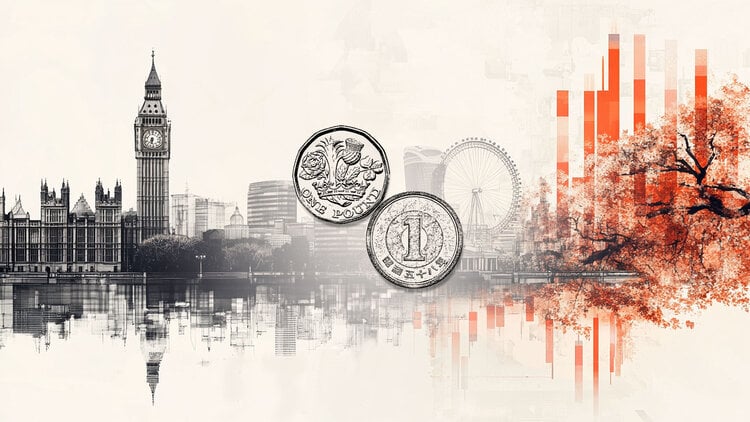The Inter-American Development Bank (IDB) published this Thursday (13), a study on the lack of trust, in general, in Latin America and the Caribbean, where only one in ten citizens believe that other people and institutions are trustworthy. .
The publication points out that increasing trust can be a key element for socioeconomic development in Brazil and Latin America.
In the report “Trust: The Key to Social Cohesion and Growth in Latin America and the Caribbean” it was observed that trust is related to issues of economic development, political and citizenship.
In addition to the overview, the study presents a set of proposals to increase citizens’ trust in institutions, businesses and personal relationships.
In Latin America, trust is lower than in other regions of the world. Brazil, where only 4.7% of people say they trust others, has the worst score in this regard. Trust has generally declined on the world average, from 38% in the 1981-1986 period to 26% in the new 2016-2020 period of analysis. In Latin America and the Caribbean, this drop was even more significant, from 22% to 11%.
The IDB’s representative in Brazil, Morgan Doyle, says that the report points out that Latin America and the Caribbean are more suspicious than other regions of the world due to issues such as inequality and income concentration. However, he points out that the roots of the lack of trust in the region are historical.
“The issue of colonization and even slavery, which created different and opposing groups, left a history of a lack of trust between people,” said Doyle, in an interview with CNN.
It is also observed how the elaboration of public policies that act to, for example, strengthen institutions, increase legal certainty and increase transparency can play a fundamental role in reducing mistrust.
“Greater trust means less bureaucracy that burdens companies and harms investments and innovation. It means more transparent governments that are committed to delivering on their promises and being accountable,” says IDB President Mauricio Claver-Carone. “And ultimately, it means engaged citizens who will voice their opinion and participate to strengthen democracies and support more inclusive societies.”
The publication traces a correlation between trust – and the lack of it – with various socioeconomic indicators, among which the strength of democracy, economic growth, productivity and innovation stand out.
Confidence
The study published by the IDB treats trust as the belief that other people or institutions will not act opportunistically. Other definitions for trust go through the security that people have in those with whom they have personal or business relationships and the belief that something will work as expected.
Mistrust can impact a company or government’s ability to attract investment or collect taxes. In addition, it may be associated with greater waste of resources with bureaucracy or conflicts. The lack of trust also makes citizens less politically engaged and charge less for quality public services, as well as reducing the chances of reporting or fighting corruption.
Overview of mistrust
According to data analyzed by the IDB, Uruguay is the Latin American country with the highest overall confidence. The country that borders Rio Grande do Sul is the only one in the region to have a confidence percentage greater than 20%. With 4.7% confidence, Brazil is the Latin American country with the greatest distrust.
Among groups or institutions, Latin Americans trust family, church, and neighbors more. Political parties, the judiciary and the congress are the focus of greater distrust in the region. Trust in banks is also lower in Latin America than in other regions.
Latin Americans have 29% confidence in governments, compared to 38% in the Organization for Economic Cooperation and Development (OECD) countries – an organization that brings together the most advanced economies in the world – and 50% in the rest of the world.
Impact on the economy
The IDB publication presents several data that correlate confidence with economic issues. These include low productivity, less innovation and a less favorable environment for business. Countries with lower trust also have lower per capita income.
Morgan Doyle, the IDB’s representative in Brazil, says that the results of a survey carried out three years ago with thousands of workers revealed that distrust among employees within companies is an obstacle to innovation and investments.
Low trust in public institutions may be associated with a lower capacity of governments to collect taxes, since if companies and citizens do not trust in the destination of resources, they may begin to omit revenues and evade taxes.
Countries with less trust make bureaucratic procedures slower and more expensive, such as opening companies or drafting contracts, which also contributes to increased corruption.
Trust and Citizenship
The IDB also shows that Latin American citizens trust police and judicial institutions less than in other continents. This leads to a lower chance of people turning to the authorities when they need to, which contributes to the perpetuation of an environment of impunity.
The low social engagement due to distrust in public institutions is another point highlighted by the publication. As a result, citizens demand less from the authorities, participate less in proposing public policies and are less willing to make personal concessions for the benefit of the majority.
Low trust is also related to less honesty. In an experiment in which a wallet with money and keys was left on the floor to measure how many passers-by would return the objects, Latin America was below OECD countries and below the global average. Other regions in the rest of the world had similar results.
proposals
The text of the IDB publication states that the low confidence environment in Latin America makes it difficult for the countries in the region to overcome the challenges they face, such as inequality, low growth rate, immigration and climate change.
To address the problem of mistrust, the publication proposes three axes of reforms and changes in public policies: reducing inequality of power, increasing transparency and integrating the issue of trust in citizenship actions.
Reducing the inequality of power involves reforms in the judiciary, to make the system more agile and predictable, which would give citizens and companies greater confidence in conflict resolution. It is also necessary to strengthen institutions that empower citizens, such as reporting channels and collective actions.
Increasing transparency requires public officials to more clearly disclose their decisions and assume responsibility for them. Data on mortality, education, police abuse and other information of public interest should be made publicly available. As well as regulatory agencies must act with clarity and transparency to avoid damage to markets.
Doyle believes that Brazil has a great opportunity to increase confidence, in general, and reap the benefits that this would bring to business and society.
“Increased confidence could bring a great benefit to achieving a firmer regional integration, stronger supply chains, with the participation of small and medium-sized companies, more productive and with greater digitization”, he said. We understand that [precisamos] put trust at the center of our debate and we all work to increase that trust between people, companies and governments”.
Reference: CNN Brasil
I am Sophia william, author of World Stock Market. I have a degree in journalism from the University of Missouri and I have worked as a reporter for several news websites. I have a passion for writing and informing people about the latest news and events happening in the world. I strive to be accurate and unbiased in my reporting, and I hope to provide readers with valuable information that they can use to make informed decisions.







